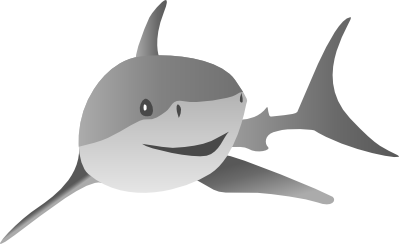Design Goals¶
The major design goals of the Shark library are speed, modularity, and portability. These goals are partially conflicting making trade-offs necessary.
Speed¶
Shark is written in C++, which in general translates into fast code. The interfaces are designed such that information can be propagated efficiently. Expensive copying of data is avoided wherever possible. Shark can be linked against ATLAS (Automatically Tuned Linear Algebra Software) to guarantee fast matrix and vector operations.
Modularity¶
Shark is highly modular, aiming for maximal reusability of code. This modularity is formalized by a number of core interfaces, as well as heavy use of templatization. For example, optimization algorithms communicate with objective functions only through top level interfaces, such that in principle every algorithm can be used for every objective function. Furthermore, this works seamlessly with dense and sparse vectors, and the user is free to rely on arbitrary data structures describing search space (such as strings, graphs, etc.).
Portability¶
The choice of the programming language and the dependencies on other software are key aspects of portability. Shark depends on the presence of a modern and (largely) standard compliant C++ compiler. Standard compliant C++ is an extremely portable programming language with compilers available for practically all major platforms. This allows us to compile Shark and programs using the library on all major operating systems, even on embedded and mobile platforms.
A piece of software is only as portable as its dependencies. Thus, we keep Shark as self-contained as possible. However, we rely on a few dependencies:
We use the CMake build system to compile Shark and its accompanying example and unit test programs. CMake is available for a large, increasing number of platforms, see http://www.cmake.org/.
Shark relies on the boost libraries for a number of tasks, such as efficient linear algebra operations on dense and sparse data structures and serialization, see http://www.boost.org/. These well-established libraries provide stable solutions to many standard problems and are themselves extremely portable. Thus, the dependency on boost is expected to even further increase the portability of Shark.
Optionally Shark can be linked with support for reading and writing the HDF5-based format of the machine learning data website mldata.org (see http://www.hdfgroup.org/HDF5/ and http://www.mldata.org/). The CMake build system tries to locate this library automatically and disables the functionality if HDF5 is not found. Thus, this dependency does not affect the portability of the rest of the Shark library.
Similarly, Shark uses openMP to parallelize certain loops, such as in evolutionary computation, if possible. This feature is not available if openMP is not found on the target system, and its absence does not affect portability.
The same applies to ATLAS as an optimized implementation of the famous BLAS linear algebra package. While Shark works completely out of the box without ATLAS, it can achieve higher performance using this library. Especially on higher dimensional problems it is advisable to use ATLAS.


